Exploring Character Progression Systems in Third-Person Shooters
5 January 2025
Third-person shooters are some of the most addictive games out there, wouldn’t you agree? There’s just something about running, gunning, and diving behind cover while getting an over-the-shoulder view of the chaotic battlefield. But let’s be honest—what really keeps us coming back for more isn’t just the flashy explosions or the slick mechanics. It’s the character progression systems that truly hook us. These are the mechanics that drive our sense of accomplishment, growth, and excitement. You know what I’m talking about: unlocking new abilities, leveling up, and becoming an absolute force to be reckoned with.
So, what makes these progression systems so special? How do they work to keep us glued to our screens (often until 2 a.m.)? And why do some games knock it out of the park while others fall flat? In this article, we’re breaking down the ins and outs of character progression in third-person shooters—how it’s evolved, the key elements that make it tick, and what it means for us, the players.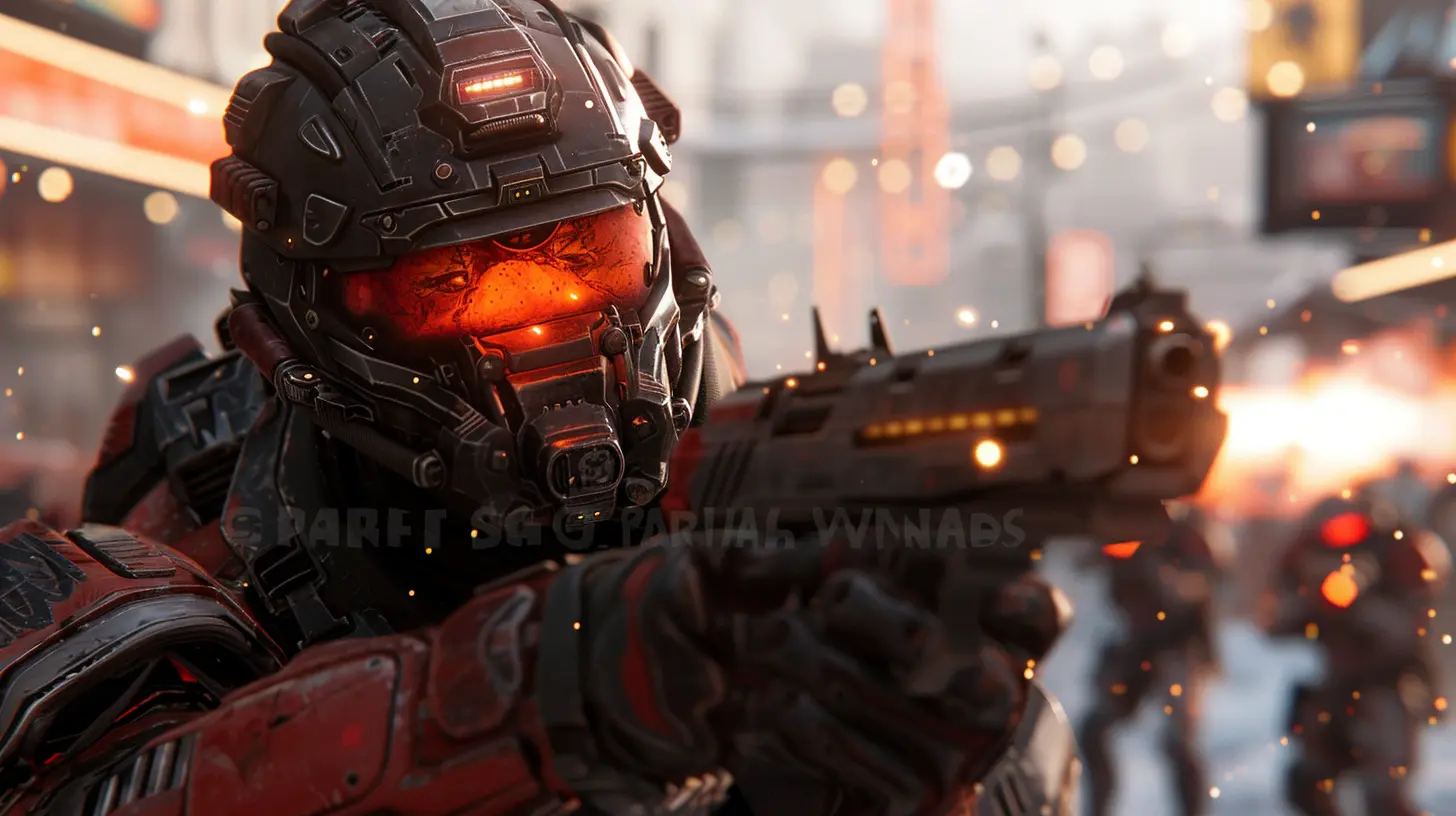
Why Progression Systems Matter in Third-Person Shooters
Have you ever played a game where you felt like you weren’t really going anywhere? Like your character was stuck in the same repetitive loop with no growth? It’s pretty demotivating, right? That’s where progression systems come in to save the day. They give us a sense of direction and purpose. Instead of just mowing down enemy after enemy, we actually get to see our characters grow stronger, become more skilled, and adapt to new challenges.Think of it like working out at the gym. If you didn’t see any progress—no gains, no stamina improvement, nothing—you’d probably quit after a couple of weeks. But when you start noticing those muscles (or maybe just surviving leg day), you get motivated to push further. Games with progression systems work the same way. They give us tangible rewards for our efforts, keeping us engaged and invested.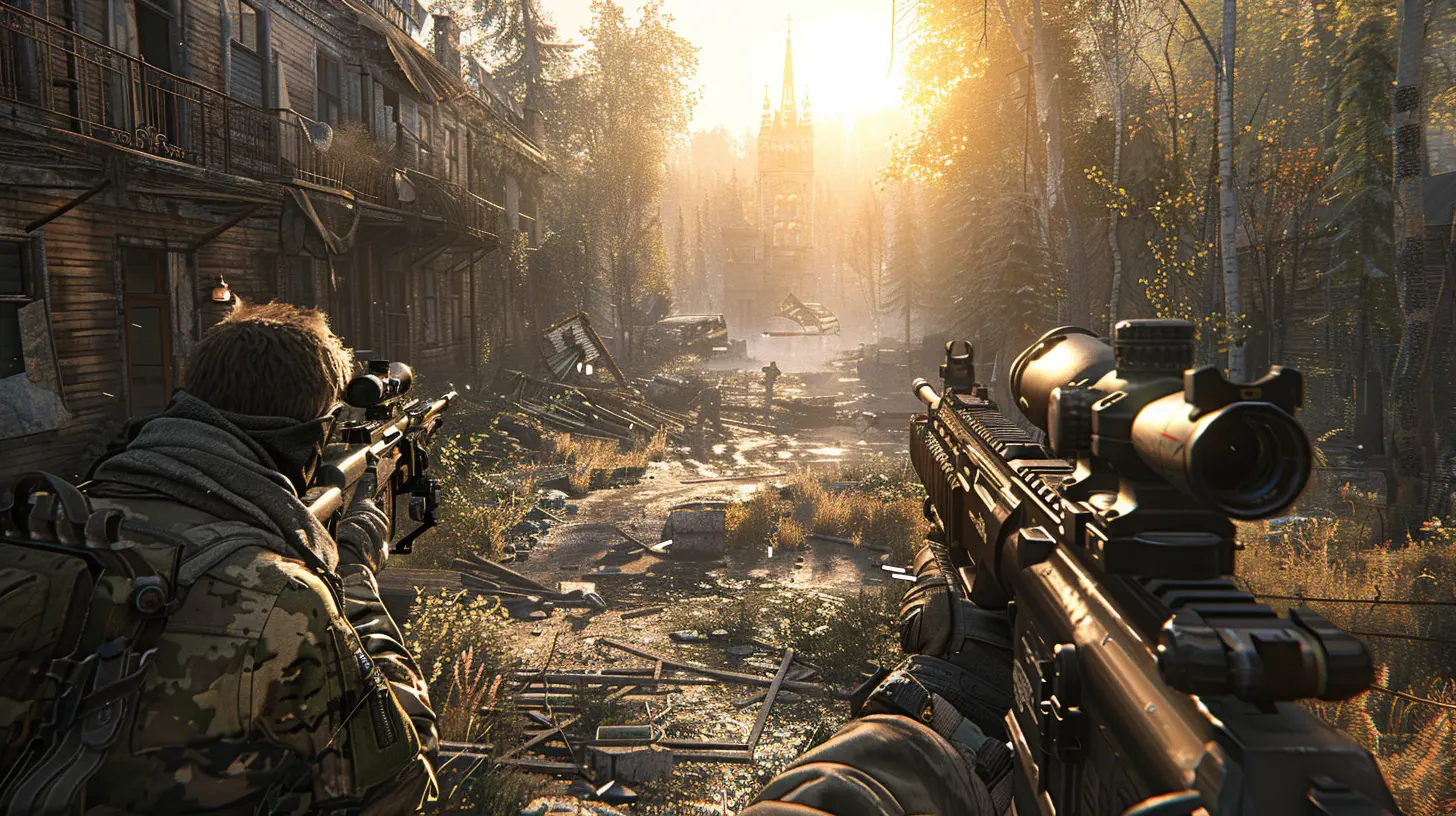
The Evolution of Character Progression Systems
From Linear to Dynamic
Back in the day, progression systems in shooters were pretty basic. You’d play through a campaign, and that was it—your character was pre-defined, and any upgrades or changes were decided for you. It was kind of like being on a railroad: you knew where you were going, but you didn’t have much say in it.Fast forward to today, and the landscape has completely changed. Modern third-person shooters have embraced dynamic progression systems. These systems let you make meaningful choices about how your character evolves. Want to focus on stealth and precision? Go for it! Prefer blowing stuff up with heavy artillery? You do you.
RPG Mechanics Taking Over Shooters
Ever notice how a lot of third-person shooters these days feel like RPGs in disguise? That’s because developers have figured out that blending RPG mechanics—like skill trees, crafting, and loot systems—into shooters creates a deeper, more engaging experience. Games like The Division and Mass Effect are perfect examples of this. They’ve taken the satisfying action of a shooter and paired it with the complexity of character building. It’s like chocolate and peanut butter: two great tastes that are even better together.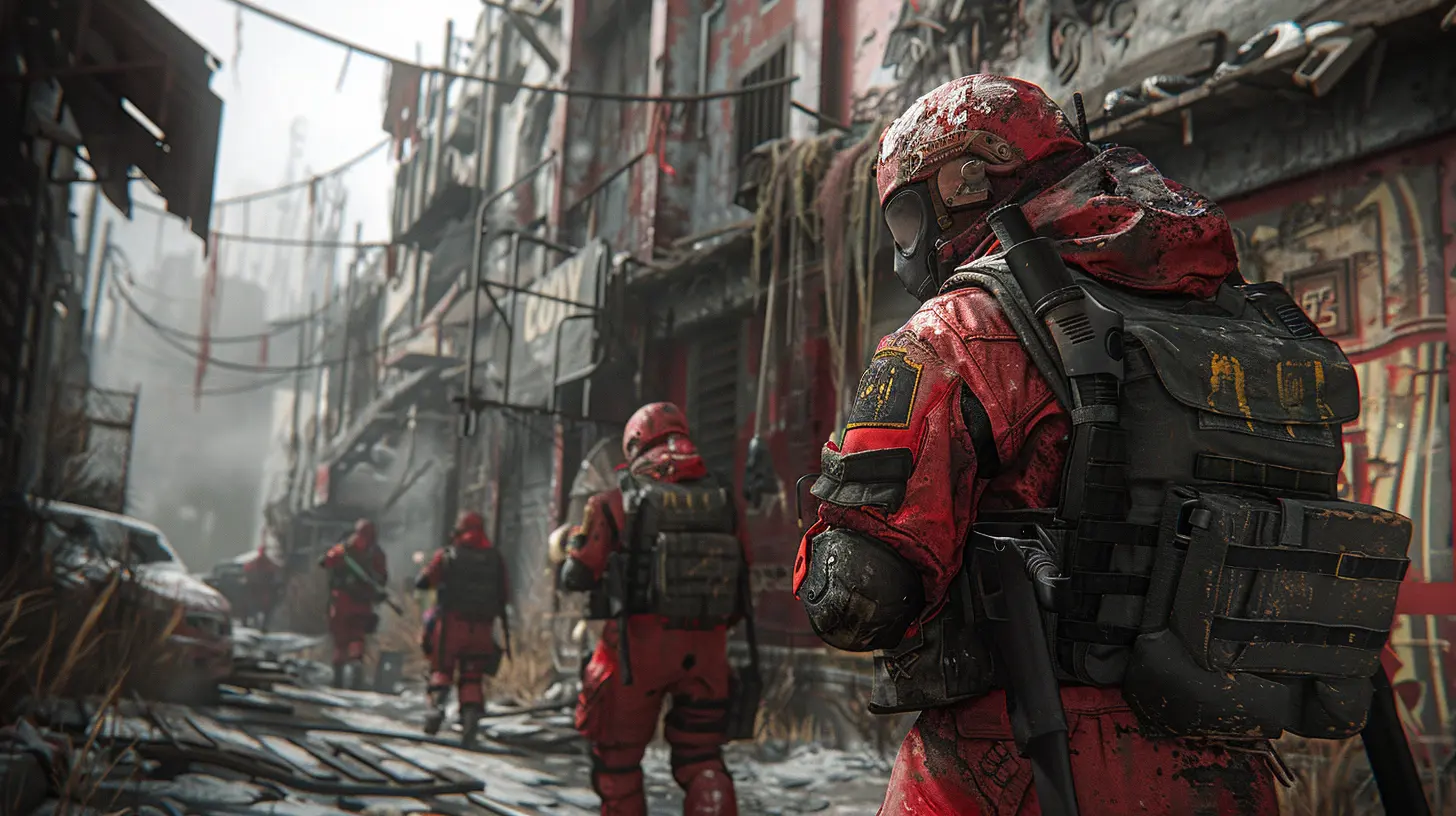
Key Components of a Great Progression System
1. Leveling Up
Let’s start with the basics: leveling up. It’s probably the most straightforward form of progression, but it’s also one of the most satisfying. Every time you see that little XP bar fill up and hear the "ding" of a level-up, you get a rush of dopamine (don’t lie, we all do). But leveling up isn’t just about the number next to your character’s name—it’s about what comes with it.Unlocking new abilities, gaining access to better gear, or even just getting a shiny new badge—these are the things that make leveling up feel rewarding. The best systems strike a balance, so leveling feels earned but not grindy.
2. Skill Trees
Skill trees are like a buffet for gamers. They let you pick and choose how you want to specialize your character. Do you want to be a tank who can soak up damage? Or maybe a sniper who can pick enemies off from a mile away? The choice is yours, and that freedom is what makes skill trees so addictive.Take Ghost Recon: Breakpoint, for example. Its skill tree system lets you tailor your character to fit your preferred playstyle. Want to run solo and go full commando? There’s a skill tree for that. Prefer to play as a supportive teammate? You can do that too. The beauty of skill trees is that they make progression feel personal.
3. Gear and Loot
Oh man, who doesn’t love a good loot system? Whether it’s a shiny new weapon, upgraded armor, or some rare gadget, loot adds that extra layer of excitement to every encounter. Games like Outriders and Remnant: From the Ashes have nailed this aspect, keeping players grinding for that one piece of gear that will complete their build.Loot systems create what I like to call "the slot machine effect." You never know what you’re going to get, and that unpredictability keeps you coming back for more. And when you finally land that god-tier weapon you’ve been hunting for? It’s like hitting the jackpot.
4. Narrative Integration
Let’s not forget the storytelling part. The best progression systems are tied to the narrative, making every upgrade feel like it’s part of your character’s journey. The Last of Us Part II is a prime example. As Ellie grows stronger and more capable throughout the game, it’s not just about the skills you unlock—it’s about how those skills reflect her emotional and physical transformation.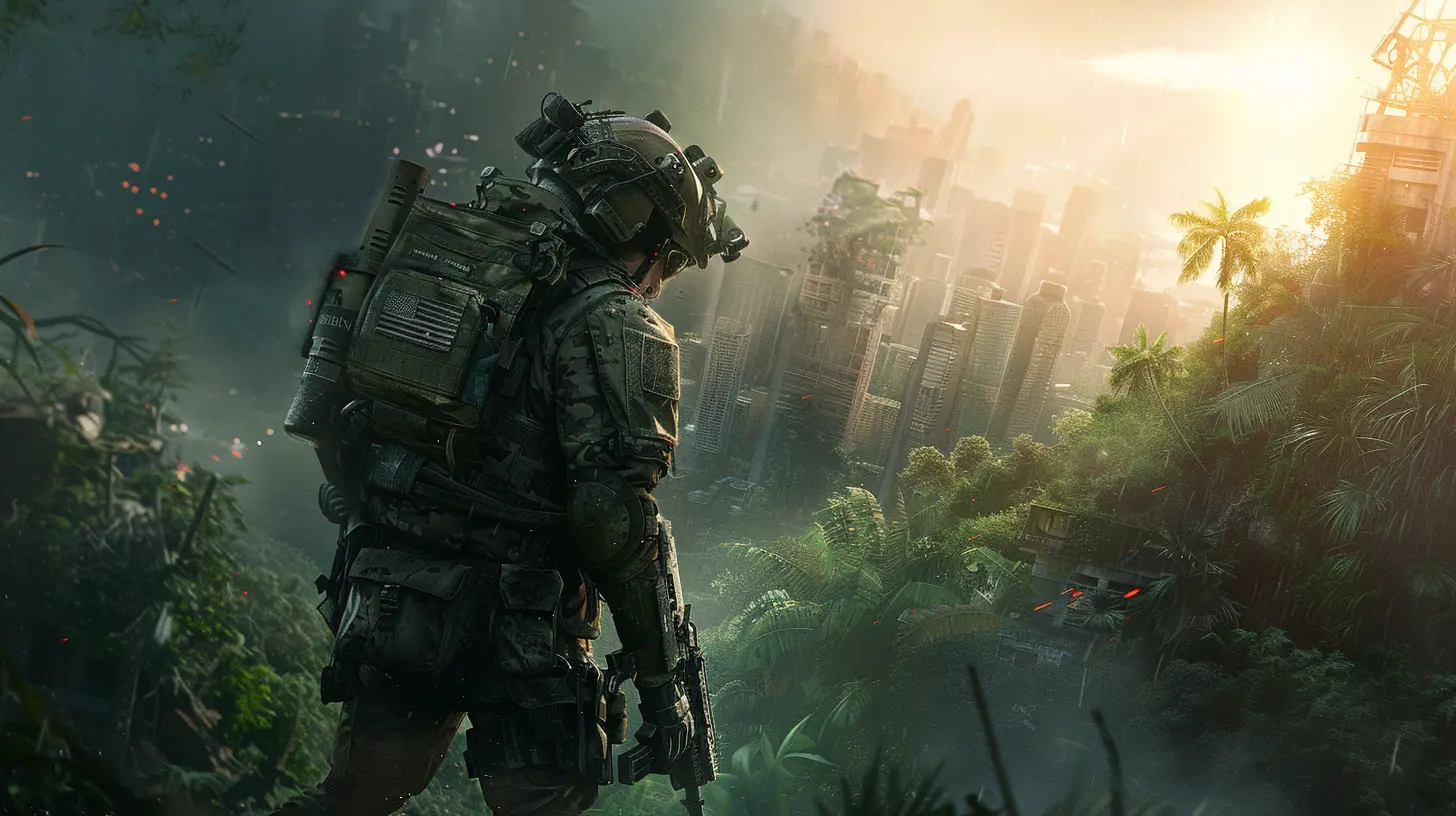
Common Pitfalls in Progression Systems
Of course, not all progression systems are created equal. Some games miss the mark, and when they do, it’s frustrating. Here are a few common pitfalls:1. Grinding for the Sake of Grinding
Nobody likes busywork. If a game makes you grind endlessly just to make marginal progress, it’s going to lose players fast. Progression should feel like a natural part of the gameplay, not a chore.
2. Lack of Meaningful Choices
If every player ends up with the same build by the end of the game, what’s the point? A good progression system should offer meaningful choices that let players customize their experience.
3. Pacing Issues
Progression needs to be well-paced. If you unlock everything too quickly, you lose the sense of accomplishment. On the flip side, if it takes too long to make meaningful progress, players will get bored and move on.
Why We Love (and Need) Progression Systems
At the end of the day, progression systems are about more than just stats and upgrades. They’re about giving players a sense of achievement and ownership. When you look at your souped-up character and think, "I built this," it’s a powerful feeling. It’s like planting a tree and watching it grow—or in this case, planting a mercenary and watching them turn into a one-person army.Plus, progression systems keep the gameplay fresh. They encourage you to experiment with different playstyles, adapt to new challenges, and keep pushing forward. Without them, even the most action-packed shooter can start to feel stale.
What the Future Holds
So, where do we go from here? As technology improves and gaming continues to evolve, progression systems are only going to get more sophisticated. We’re already seeing AI-driven systems that adapt to your playstyle, offering personalized rewards and challenges. Imagine a game that learns what you love and tailors its progression system specifically to you. Sounds pretty awesome, right?Ultimately, the goal will always be the same: to keep players engaged, entertained, and coming back for more. And as long as developers keep innovating, we’re in for some exciting times ahead.
Final Thoughts
Character progression systems are the secret sauce that makes third-person shooters so addictive. They give us goals to chase, decisions to make, and rewards to savor. Whether it’s leveling up, mastering a skill tree, or hunting for that perfect piece of loot, these systems keep us hooked in all the right ways. So the next time you’re crouched behind cover, plotting your next move, remember: it’s not just about the fight—it’s about the journey.all images in this post were generated using AI tools
Category:
Third Person ShooterAuthor:

Francesca West
Discussion
rate this article
9 comments
Mallory Thompson
Great article! Diving into character progression systems really enhances the gaming experience in third-person shooters. It's fascinating to see how these mechanics can deepen player engagement and strategy. Keep up the excellent work, and I look forward to more insightful discussions on game design!
March 11, 2025 at 4:45 PM

Francesca West
Thank you for your kind words! I'm glad you found the article insightful. I appreciate your support and look forward to exploring more game design topics!
Azura Love
Great article! Character progression systems add depth and engagement to third-person shooters, enhancing the overall experience. It’s fascinating to see how these mechanics evolve gameplay and player investment. Looking forward to more insights on how different titles implement these systems to keep players coming back for more!
February 5, 2025 at 4:49 AM

Francesca West
Thank you for your feedback! I'm glad you found the article insightful. Stay tuned for more in-depth explorations of character progression in different titles!
Macey Walker
Great insights on character progression! It's fascinating to see how different systems impact gameplay and player engagement in third-person shooters. Keep up the good work!
January 29, 2025 at 3:42 AM

Francesca West
Thank you for your kind words! I'm glad you found the insights on character progression engaging. Your support means a lot!
Miriam King
Character progression systems in third-person shooters add depth and replayability, allowing players to customize their gameplay experience. Balancing skill trees, weapon upgrades, and narrative choices can create a more immersive journey, enhancing both competitive and cooperative play dynamics.
January 21, 2025 at 5:14 AM

Francesca West
Thank you for your insightful comment! I completely agree—character progression systems can significantly enhance the depth and replayability of third-person shooters, making each playthrough unique and engaging.
Ingrid Torres
Character progression in third-person shooters often feels like a double-edged sword—rewarding yet repetitive. While skill trees can transform a basic grunt into a formidable fighter, they risk overshadowing the pure thrill of gameplay. Ultimately, it’s about balancing depth with dynamic action. How do we keep it engaging without overwhelming?
January 11, 2025 at 3:27 AM

Francesca West
Balancing character progression with dynamic gameplay is key. To keep it engaging, we should focus on meaningful choices in skill trees that enhance, rather than overshadow, the core action—ensuring each upgrade feels impactful without detracting from the thrill of the game.
Kade Murphy
Character progression in third-person shooters: because nothing says ‘I’m ready to save the world’ like unlocking a skin that makes your character look like they just stepped out of a fashion magazine! Let’s get fabulous!
January 8, 2025 at 5:49 PM

Francesca West
Absolutely! Character skins can add a fun layer to progression, blending style with gameplay. It’s all about personal expression while saving the world!
Samuel O'Neal
Great insights! Character progression truly enriches our gaming experiences. Thank you!
January 8, 2025 at 4:23 AM

Francesca West
Thank you! I'm glad you found the insights valuable. Character progression really does enhance gameplay in third-person shooters!
Ranger Gill
Character progression in third-person shooters is like leveling up in life—each upgrade brings new skills and a sense of accomplishment! Keep shooting for those goals, and watch your virtual self soar! Game on!
January 6, 2025 at 4:22 AM

Francesca West
Absolutely! Character progression in games mirrors life’s journey, offering skill enhancements and a rewarding sense of achievement. It’s all about growth—both in-game and personally. Game on!
Sebastian Dorsey
Great article! Character progression in third-person shooters can really enhance gameplay, but it often feels unbalanced. Finding the right mix of skill and power is crucial for keeping the experience engaging. I’d love to see more innovative systems that truly reward player skill and creativity!
January 5, 2025 at 3:50 AM

Francesca West
Thank you for your insightful comment! Balancing skill and power is indeed vital for engaging gameplay, and I'm glad you appreciate the need for innovative systems. Your thoughts on rewarding player creativity are especially valuable!
MORE POSTS
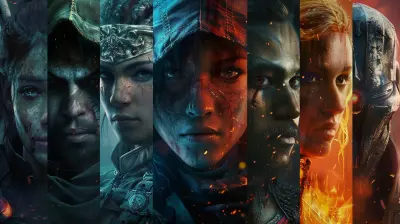
The Fan Communities That Are Redefining Game Development

How Racing Games Are Pushing the Limits of Sound Design

Why Custom Controllers Are Gaining Popularity
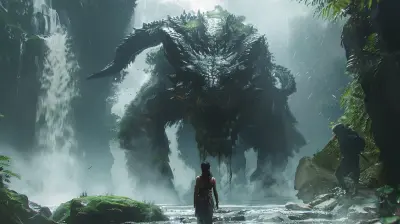
Video Games as Modern Mythologies: Storytelling in Digital Worlds

How to Beat Season Pass Fatigue in Today’s Gaming Landscape

The Rise of Nonlinear Storytelling in Game Development

What Happens When Early Access Games Are Abandoned?